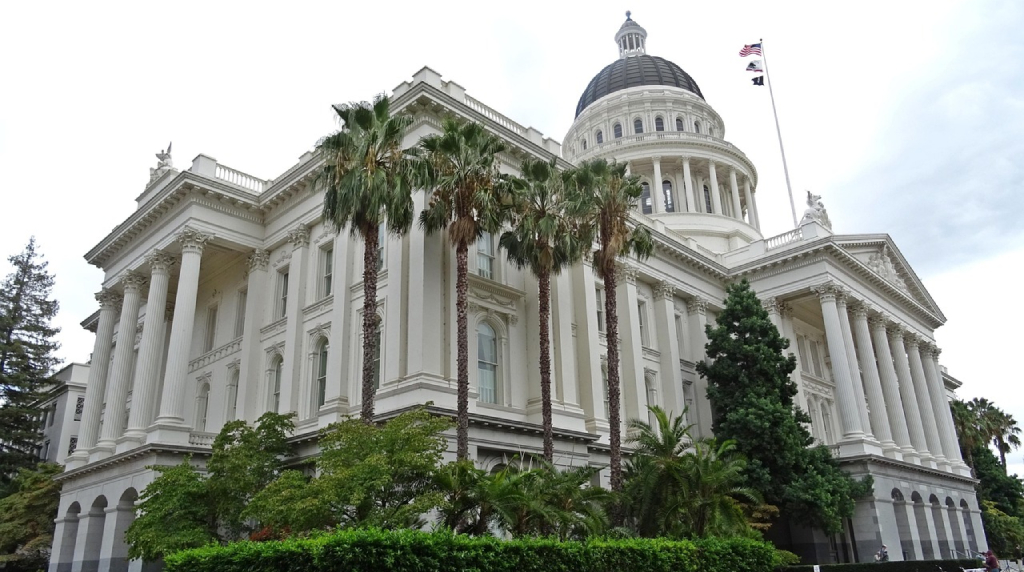California Bans Sweepstakes Casinos as Newsom Signs AB 831 into Law
California’s new law bans sweepstakes casinos, marking the most significant crackdown so far on unregulated online gambling.
Key Facts:
- Governor Gavin Newsom signs AB 831 into law, banning sweepstakes casinos statewide.
- The law targets dual-currency social-casino models using “gold” and “sweeps” coins.
- Ban takes effect 1 January 2026 after unanimous legislative approval.
- Analysts say California’s move could reshape the $4 billion U.S. social-casino market.
Governor Gavin Newsom has signed Assembly Bill 831 (AB831) into law, formally outlawing sweepstakes casinos and social platforms that mimic real world gambling.
These untaxed and unregulated websites have long bedeviled the state and also California’s tribes, who have the exclusive right to offer casino-style gaming in the state.
Largest US Market Shutters Doors
The law, which goes into effect on 1 January 2026, specifically bans operators using the dual-use currency model of gold coins and sweeps coins to offer cash-redeemable prizes without gambling licenses.
It also more broadly attempts to deter vendors and partners like payment processors, geolocation providers, and even media affiliates by holding them legally liable and threatening $25,000 fines per violation and up to one year in jail.
California joins Connecticut, Montana and New Jersey in banning sweepstakes gambling outright in 2025. State regulators across the country have also filed hundreds of cease and desist letters in states from Michigan to Louisiana, and from New York to Arizona.
In August, Los Angeles City Attorney Hydee Feldstein Soto sued Stake.us for allegedly running an illegal gaming operation and included several high-profile slot and live streaming table providers, including Evolution, NetEnt and Hacksaw Gaming for good measure.
Most operators exited California after the lawsuit and the passage of AB 831, though with many vendors pulling back from working with or supplying these types of businesses in the state, there probably wasn’t a lot of choice.
Not Everyone Is Happy
As one political pundit pointed out, lawmakers in California can’t even agree on what color the carpet is in the Senate rotunda, let alone pass a bill unanimously, yet that is just what happened here.
That shows both the political influence of tribal gaming in the state and what little regard politicians have for unlicensed businesses paying little or no taxes.
The Social Gaming Leadership Alliance insisted that the governor and legislature had acted against the will of the people. They pointed to some industry research that indicated that a billion dollars in annual economic impact would be lost and hundreds of millions of dollars in potential tax revenue if the product were regulated instead of banned.
Still, it seems hard to jibe with Amendment Five, which gave the Tribe’s constitutional authority as the only entity in California to offer house-banked gaming. However, card rooms have continued to find new and novel ways to offer what they insist are player banked games.
Several smaller tribes in remote locations, including the Kletsel Dehe Wintun Nation, Sherwood Valley Rancheria, Mechoopda Tribe of Chico Rancheria, and Big Lagoon Rancheria, also opposed the measure, arguing it favors large tribal and commercial casinos at their expense.
But essentially, it comes down to those tribes not having viable locations or funding for anything other than some type of iGaming or sweepstakes venture.
Potential National Impact
Analysts at Eilers & Krejcik Gaming estimate the law will cut 20% from the U.S. sweepstakes-casino market, reducing it to $4 billion in 2025 and prompting another 10% decline in 2026. With enforcement beginning next year, California’s move signals that the era of unregulated sweepstakes casinos is nearing its end.


 Book of Dead GO Collect by Play’n GO: New Slot Preview
Book of Dead GO Collect by Play’n GO: New Slot Preview
 Hot Ross by Hacksaw Gaming: New Slot Release Preview
Hot Ross by Hacksaw Gaming: New Slot Release Preview
 $1.6B Super Bowl Trading Sparks Prediction Market Debate
$1.6B Super Bowl Trading Sparks Prediction Market Debate